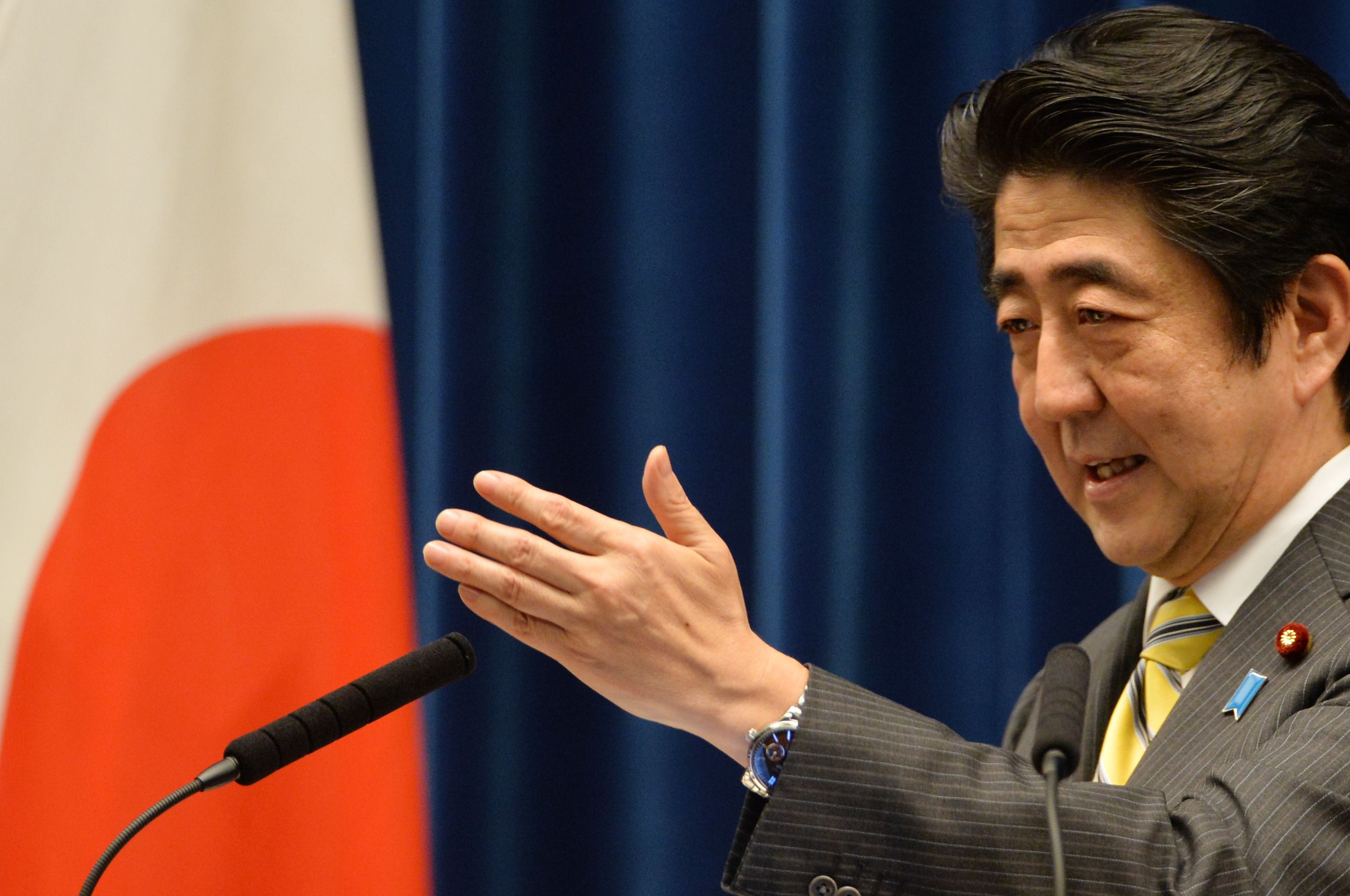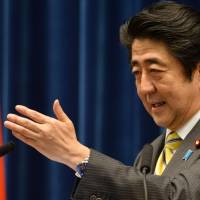Prime Minister Shinzo Abe made his case again Tuesday that restraints on the Self-Defense Forces should be loosened amid a changing security environment in the Asia-Pacific region.
"It is necessary to appropriately interpret the Constitution," Abe said at a press conference to mark the end of the 150-day Diet session through Sunday.
"A decision on a constitutional revision (for an expanded SDF role) should be made as the public debate deepens. I hope to see a national debate on the matter."
Abe is pushing to enable Japan to come to the aid of its allies under armed attack, by exercising the right to collective self-defense, which is banned under the government's current interpretation of the Constitution.
"To develop legislation aimed at protecting the lives of citizens will lead to an increase in Japan's deterrent capabilities and reduce the possibility of being dragged into a war," he said.
Abe added that Philippine President Benigno Aquino expressed his support for Japan's bid to play an active security role when the two leaders met in Tokyo earlier Tuesday.
China has been more assertive in its territorial disputes with Japan in the East China Sea, and with some Southeast Asian countries including the Philippines in the South China Sea.
North Korea also poses a security threat to the Asia-Pacific region, prompting countries such as the United States to seek a greater role for Japan.
"I have gained support from APEC, ASEAN and G-7 member nations for Japan's stand for the rule of law," Abe said. "North Korea's nuclear development has grown serious, with its missiles targeted at most parts of Japan. The threats of terrorism and cyberattacks go beyond national borders in a blink of an eye."
"We can't refuse to face those realities," he said.




